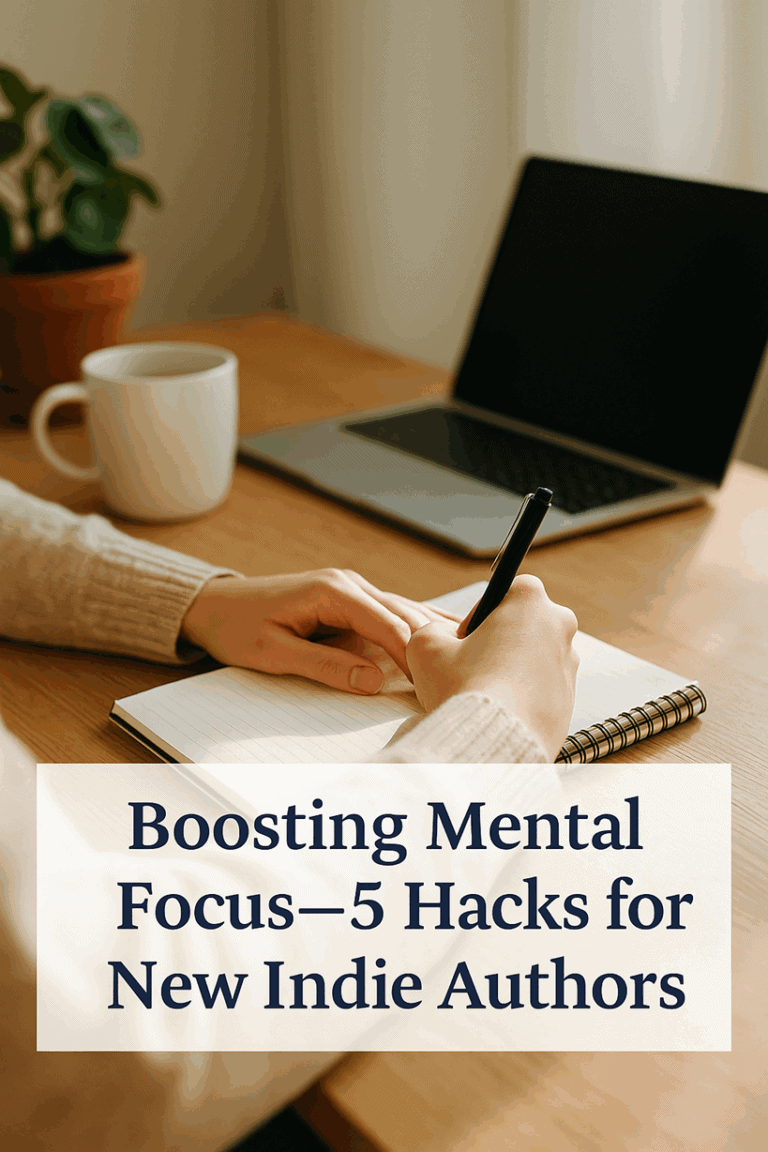Audiobook Production: Unlock Your Book’s Potential

“Each format, whether it’s digital, print, or audio, unlocks new possibilities and audiences for your book.” – Joanna Penn, The Creative Penn
As an indie author, you face a publishing revolution. You’re at the pivotal crossroads of a rare opportunity coupled with seemingly daunting challenges. Let the challenges motivate you. Take advantage of this once-in-a-lifetime opportunity by adapting and offering your work in different formats such as audiobooks. When you do, you create a new avenue to reach readers worldwide.
By using the power of voice (yours or a narrator’s), you give life to your words and reach people who experience the world through sound. Audiobook production enables you to connect with busy commuters, those who engage in other activities while consuming content, and individuals who prefer auditory learning. It offers a unique opportunity to share your message.
Diversifying the format of your book shows your commitment to meeting readers wherever they are. It’s about opening your work to new markets and opportunities. This intentional approach could further your author platform, where visibility and reach are crucial for success.
As an indie author, this is your step into a broader, diverse, and inclusive publishing world.
Ready to take the plunge?
Audiobook Production
Audiobooks represent a rapidly growing sector in the industry, tapping into the lifestyle of busy readers who consume on the go. By offering your work as an audiobook, you open doors to a broader, diverse audience, including those who prefer auditory learning or have visual impairments.
Embrace audiobook production as an indie author to harness innovation and flexibility. The thriving audiobook industry reflects consumers’ changing habits. Busy lifestyles and multitasking have made audiobooks apps favorite for many. By providing your content in this format, you offer an immersive experience, not only a book.
Your journey to audiobook production presents challenges but also plentiful rewards. Consider your manuscript’s auditory potential. Can a gripping narrative voice turn your mystery novel into a spine-tingling experience? Will a charismatic narrator bring the witty dialogue of your comedy to life?
Once you decide to proceed, finding the right narrator becomes your mission. They will transform your written words into a vibrant, auditory world.
Engage your audience throughout the production process to build excitement. For instance, Andy Weir, author of The Martian, shared behind-the-scenes snippets and updates during the audiobook production. This created a buzz and profound connections with his readers.
TIP: Consider your book’s suitability for audio and, if appropriate, hire a professional narrator who resonates with your book’s style and genre.
As an indie author, innovate your approach by exploring unique marketing strategies to set yourself apart (see our writer’s guides on marketing). Consider how JK Rowling expanded the Harry Potter universe through immersive audiobooks featuring sound effects and music, taking storytelling to a new level.
Promotion Plays a Critical Role
Use targeted advertising on Audible, social media platforms, or other audiobooks apps to reach audiobook enthusiasts directly. Engage with book clubs and podcasts for cross-promotion opportunities. Offering exclusive audio snippets or hosting live Q&A sessions with the narrator potentially intrigues potential listeners.
Promoting an audiobook effectively is a crucial step for indie authors to reach a wider audience and increase their book’s success. The process often begins with identifying the target audience and tailoring promotional efforts to suit their preferences. Utilizing social media platforms is a key strategy, as these channels offer a direct way to engage with potential listeners. Authors can share audio snippets, behind-the-scenes content, and collaborate with influencers or other authors to broaden their reach. Email marketing also plays a vital role, allowing authors to keep their subscribers informed about new releases and special promotions.
Getting audiobooks listed on popular platforms like Audible, iTunes, and Google Play enhances visibility. Authors can leverage the power of reviews by encouraging listeners to leave feedback, which boosts credibility and discoverability.
- Special promotions, such as limited-time discounts or giveaways, can attract new listeners.
- Participating in online forums, book clubs, and audiobook communities also helps in building a loyal fan base.
- Networking with other authors and participating in literary events, either virtually or in person, can further amplify promotion efforts.
Don’t overlook the potential of creating a compelling audiobook cover and a well-crafted description, as these elements play a critical role in capturing the interest of potential listeners at first glance. Effective audiobook production and promotion is a blend of strategic planning, creative marketing, and active engagement with the audience.
AI Innovation
Artificial Intelligence (AI) technology offers several innovative ways audiobook production. Here are some key methods.
- Text-to-Speech (TTS) Narration: Advanced AI-driven TTS services can convert text into natural-sounding speech, making it easier and more cost-effective to produce audiobooks. These AI voices have become increasingly sophisticated, offering a range of accents, tones, and inflections.
- Audio Editing and Enhancement: AI tools can help in editing the audio files, including removing background noise, adjusting volume levels, and enhancing voice clarity. This can significantly reduce the time and expertise required for audio editing.
- Voice Customization: Some AI platforms allow authors to customize the voice used for their audiobook. This means they can select a voice that best suits their story’s character or tone, providing a more engaging listening experience.
- Translation and Localization: AI can also aid in translating the book into different languages, enabling authors to produce audiobooks for diverse linguistic audiences without the need for multilingual narrators.
- Distribution and Marketing Insights: AI-driven analytics can provide insights into listener preferences and behavior, helping authors understand their audience better. This data can inform marketing strategies and distribution choices.
- Script Adaptation: AI can assist in adapting the written text into a script suitable for audio narration, ensuring a smooth and listener-friendly experience.
- Emotion and Tone Analysis: Some AI tools can analyze the text for emotion and tone, suggesting changes or enhancements in the narration style to align with the mood of the content.
- Royalty-Free Sound Effects and Music: AI can generate or recommend appropriate sound effects and background music, adding depth and atmosphere to the audiobook.
It’s important to remember: AI can greatly assist in audiobook production, but your human touch in creative decision-making, especially in areas like narrative style and emotional depth, remains crucial. The use of AI should complement, not replace, the creative vision of the author. Your unique voice and perspective continue to be the core of your book in any format.
Audiobook Production Wrap-Up
Your self-publishing journey opens up a wide range of possibilities. Audiobook production offers an immersive experience, one that’s different from what print cannot provide.
One component remains constant across different formats and processes. Your unique voice and ideas. They should shine through in any format. Technological aspects, design elements, and AI tools merely help you shape your manuscript. The tools support you in sharing your work with the world.
Diversifying formats is a strategic move toward greater accessibility, a wider audience, and unlimited success. Adapting the format of your work expands its reach and connection with audiences in a new way. Each format you explore and each new market you enter enhances your journey. It brings you closer to readers. Accept the learning curve and experiment with different formats.
The driving force is your passion for storytelling, sharing your ideas, or solving problems.
The self-publishing journey is yours to create. The path to audiobooks offers unique experiences and opportunities. Use the tools, knowledge, and resources available to you. Trust your instincts. Embrace and enjoy the journey of bringing your vision to life.
In the diverse and ever-evolving indie world, you’re equipped to navigate it with increasing confidence and creativity. As the self-publishing world evolves, so should you as a new indie author.
We hope you’ve found the audiobook tips useful and inspiring. To continue increasing your knowledge and skills, we recommend reading other articles in this series, “Is Your Book Ready to Self-Publish?” Each article aims to increase your understanding and skills, leading you to successfully self-publish your book. We suggest starting with the first guide in the series.
This series is based on our latest book, Is Your Book Ready to Self-Publish? It’s a comprehensive resource covering crucial aspects of self-publishing and offering practical advice to aspiring indie authors. For help writing a non-fiction book, read Write Your First Non-Fiction eBook: a 30-Day Workbook for Getting It Done.
Becoming a writer requires continuous learning and growth. But it doesn’t have to be a lonely journey. We’re delighted to be on the journey with you, providing support and encouragement.
Don’t wait. Start today!
How can we help? To let us know, please fill out our contact form. Happy writing!
FAQs
What Should I Know About Audiobook Production and Distribution?
Answer: When producing an audiobook, focus on quality narration and sound editing. You can either narrate it yourself or hire a professional voice actor. Platforms like Audible, iTunes, and Google Play Books are popular for distribution. Understand their royalty structures and exclusivity requirements.
How much does it typically cost to produce an audiobook?
Answer: The cost of producing an audiobook varies widely based on factors like the book’s length, the choice of narrator (professional or self-narrated), and the production quality. Generally, it can range from a few hundred to several thousand dollars.
Can I use AI-generated voices for my audiobook narration?
Answer: Yes, AI-generated voices are an emerging option for audiobook narration. They can be more cost-effective than hiring a professional narrator, but it’s essential to consider the quality and the potential impact on the listener’s experience.
How do I obtain the rights to produce an audiobook if I’m not the original author?
Answer: To produce an audiobook of a work you did not author, you must acquire the audio rights from the author or the publisher. This usually involves negotiating a contract that includes royalty payments or a flat fee.
How long does it take to produce an audiobook?
Answer: Production time can vary greatly depending on several factors, including the length of the book, the complexity of the content, and the production choices made. On average, it takes about two to six weeks to produce a standard-length audiobook (around 80,000 to 100,000 words). This includes narration, editing, proofing, and mastering stages. If you’re using a professional narrator, recording can take a few days to a couple of weeks, depending on their availability and the book’s length. The editing process, which involves removing mistakes, adjusting pacing, and ensuring audio quality, usually takes longer than the recording itself.
If AI-generated voices are used, the recording process can be quicker, but additional time may be needed to fine-tune the AI voice for naturalness and expressiveness. Keep in mind that these are general estimates, and the actual time can vary based on individual project needs and specific production arrangements.


